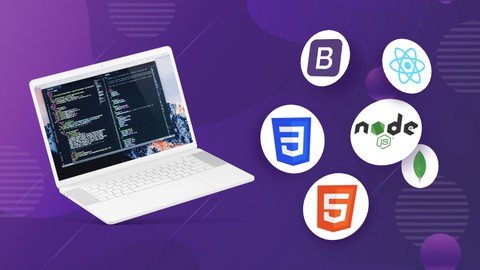Learn about bootstrap coding interview questions, bootstrap is a popular front-end framework for creating responsive and visually appealing websites. Get answers to frequently asked questions about Bootstrap, including how to…
Express.js Interview Preparation with Code Example Question Answers

Learn about Express.js, a popular web application framework for Node.js.
This blog post covers common interview questions, code examples, and key concepts of Express.js. Get ready for your Express.js interview with this comprehensive guide!
Introduction
Express.js is a popular web application framework for Node.js, known for its simplicity and flexibility. It is widely used to build fast and scalable web applications.
If you are preparing for an interview that involves Express.js, it is essential to have a solid understanding of its key concepts and features.

In this blog post, we will cover some common interview questions related to Express.js along with code example answers.
1. What is Express.js?
Express.js is a minimal and flexible web application framework for Node.js.
It provides a robust set of features for web and mobile applications, including routing, middleware support, and template engines.
With Express.js, developers can easily build APIs, web applications, and even full-stack applications.
2. How to create a basic Express.js application?
To create a basic Express.js application, follow these steps:
const express = require('express');
const app = express();
app.get(‘/’, (req, res) => {
res.send(‘Hello, Express!’);
});
app.listen(3000, () => {
console.log(‘Server started on port 3000’);
});
3. What is middleware in Express.js?
Middleware functions in Express.js are functions that have access to the request and response objects.
They can modify the request and response objects, execute any code, and end the request-response cycle.
Middleware functions are executed sequentially, and each middleware function can either terminate the request-response cycle or pass control to the next middleware function.
4. How to use middleware in Express.js?
Middleware can be used in Express.js using the app.use() method. Here’s an example of using middleware to log the request method and URL:
app.use((req, res, next) => {
console.log(`${req.method} ${req.url}`);
next();
});
5. What are route handlers in Express.js?
Route handlers are functions that handle requests to specific routes in an Express.js application. They are executed when a matching route is found.
Route handlers can perform various tasks, such as fetching data from a database, rendering a template, or sending a response to the client.
6. How to define a route handler in Express.js?
A route handler can be defined using the app.get(), app.post(), or other similar methods. Here’s an example of defining a route handler for the “/users” route:
app.get('/users', (req, res) => {
// Fetch users from the database
const users = getUsers();
// Send the users as a JSON response
res.json(users);
});
7. What is routing in Express.js?
Routing in Express.js refers to how an application’s endpoints (URIs) respond to client requests.
It involves defining routes for different URLs and handling those routes with appropriate route handlers. Express.js provides a simple and intuitive way to define routes and handle requests.

8. How to handle static files in Express.js?
Static files, such as HTML, CSS, and JavaScript files, can be served using the express.static() middleware in Express.js. Here’s an example of serving static files from a “public” directory:
app.use(express.static('public'));
9. What is template engine support in Express.js?
Template engines in Express.js allow you to render dynamic HTML templates on the server-side.
Express.js supports various template engines, such as EJS, Pug, and Handlebars. Template engines help in generating dynamic HTML pages by injecting data into predefined templates.
10. How to use a template engine in Express.js?
To use a template engine in Express.js, you need to set the view engine and specify the directory where your views (templates) are located. Here’s an example of using the EJS template engine:
app.set('view engine', 'ejs');
app.set('views', path.join(__dirname, 'views'));
app.get(‘/’, (req, res) => {
res.render(‘index’, { title: ‘Express.js’ });
});
Conclusion for express.js interview article
Express.js is a powerful web application framework that offers a wide range of features for building robust and scalable applications.
By familiarizing yourself with the key concepts and features of Express.js, you can confidently tackle interview questions related to this framework.
The code examples provided in this blog post should help you understand how to implement various functionalities using Express.js.
Good luck with your Express.js interview preparation!



































